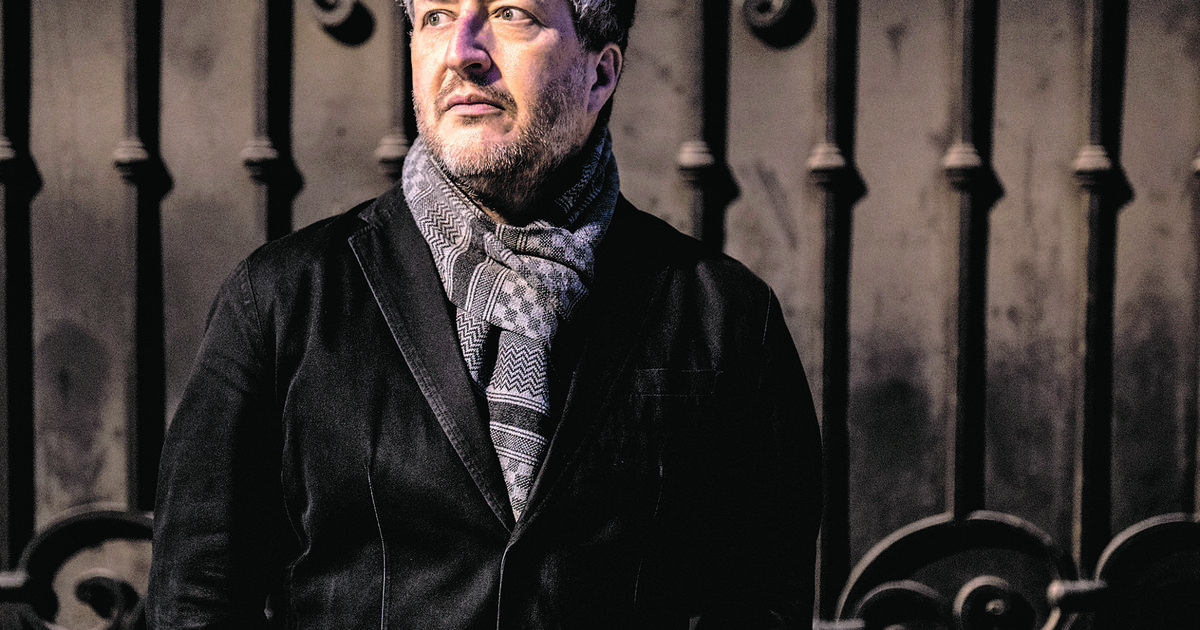The interesting thing about a conversation with Tony Blair (Edinburgh, 67 years old), the most influential British Labor politician of recent decades, is to see that Brexit never meant, as nostalgia suggests, the end of a hitherto idyllic relationship.
The United Kingdom was always the loose and uncomfortable verse of the EU, but influencing from within the club is not the same as provoking from outside.
Blair now contributes his analysis to the head of the Institute for Global Change
,
which he founded years ago.
And he regularly exchanges opinions and data with a group of international media, including EL PAÍS.
It would be very easy for him to scrutinize the mistakes of
Prime Minister
Boris Johnson, or to constantly remember that he always considered the exit of the United Kingdom from the European Union an immense strategic error, but, like other former leaders, he chooses the freedom to consider each success or each error of the leaders. current political protagonists without partisan or sentimental ties.
And in the vaccine conflict, which has raised disputes on both sides of the English Channel, it is clear that Brexit has been an excuse.
“I find it much more interesting to point out what the EU has lost without us.
If the United Kingdom were still part of the Union, we would never have contemplated that situation in which the control of the acquisition of vaccines has been taken away from the Member States [the European Commission assumed the contracting and distribution of the drugs, to avoid competition between members].
It was not a sensible decision.
With a matter of such importance, you need control to be in the hands of a group of people with full dedication.
In the end, all this has meant that the EU has a delay of about 10 weeks in the vaccination program, although I am sure that sooner or later it will be solved ”, he declares.
It is not a question of triumphalism, he points out, but of practicality.
“You can already imagine that all Brexit advocates have celebrated this contrast as a victory.
And I would remind you that, in the past, the EU has done better than the UK many times, and vice versa.
That the Johnson administration has done its vaccination strategy well is a verifiable fact.
But the key has been to let a small group of people act.
Governments are the best qualified to establish a strategy, but they are not usually the best suited to develop it.
Our systems are very bureaucratic and very reluctant to take risks, ”he adds.
Blair believes that the key now is to focus on the future.
“So far, countries have tried to protect themselves, and it is perfectly understandable by the way this pandemic has developed.
But the truth is that a year ago we already knew how serious it was.
The lesson we must learn is that global cooperation is necessary, while each country protects its national interest.
It will be the only way to make future pandemics shorter ”.
Reorder fiscal priorities
In any case, the world already has something like an instruction manual for the first stage of the crisis.
The virus is no longer unknown, and the strategy - with more or less adjustments - consists of tightening or loosening social restrictions and accelerating vaccination programs.
The phase that worries the Labor politician is the following: the economic one.
“Most Western governments have bet that no matter how the debt grows, that the danger of inflation has disappeared and that interest rates will remain very low.
The fundamental question to ask is whether all these assumptions will hold up, because if not, we will find ourselves in serious trouble.
Some of the people I talk to, who were not concerned about inflation last year, are much less relaxed today.
We face many uncertainties, and it seems increasingly clear that many governments are going to have to reorder their fiscal priorities, ”he warns.
The future is too complex to keep the embers of Brexit alive.
“There will always be reasons to signal from the UK that the EU is doing things wrong, and there will always be reasons to justify why the British are doing worse and that Brexit was a mistake.
We are going to need a high level of status from the leaders of both sides, because cooperation is urgently needed against future pandemics, against climate change, or in matters such as energy or defense.
Our political, legal or economic relationship may change, but not our geography, our history or our principles.
We cannot continue playing facing the gallery ”, he points out.
A clear example is the recent tensions in Northern Ireland.
The special status assigned to that part of British territory, to preserve peace on the island after decades of conflict, has not come for free.
There are merchandise controls and trade frictions, which make unionist parties nervous and which the Johnson government has wanted to use to change the Irish Protocol attached to the EU withdrawal agreement upside down.
“There is no point in complaining nonstop.
The problem exists because it is the legal and political consequence of the decision made by the UK Government.
We have to find practical solutions to solve it.
If you undo the agreement, you return to the starting box.
I do not believe that the EU will accept that the protocol be annulled.
And even if he did, it wouldn't do any good.
We would return to the original situation and the need to develop a new agreement ”.
From outside the political fray, time grows wider.
It is no longer measured in days or weeks.
It can be measured in years.
And so Blair trusts Keir Starmer, leader of the Labor Party since last April, against the nervousness of those who believe he is being a pushover with Johnson.
“It was the inevitable consequence of driving the far left out of Labor [referring to former leader Jeremy Corbyn and his supporters].
It needs to get it back to being a party that wins elections.
And doing it in the middle of a pandemic is a challenge, because the decisions are made by the government, and nobody cares what the opposition says.
You have started a process of returning to the center, and you must re-balance your proposals and your thinking.
But he has time, until the general elections of 2024 ″, he adds.
Keir Starmer faces disappointment in his first year as Labor leader
As long as, Blair warns, don't be fooled by the anecdotal wars the left sometimes falls into, such as the recent controversy over whether to keep or tear down statues of historical figures with a slave-owning or colonialist past.
“What I call the radical center must ensure a more just society.
During my governments we made great strides in racial or sexual equality.
That's what Labor should focus on.
In discussing about the future, not about history ”, he concludes.

/cloudfront-eu-central-1.images.arcpublishing.com/prisa/DVKVU2Q2VJGEJAHUMTVXI4YK4M.jpg)





/cloudfront-eu-central-1.images.arcpublishing.com/prisa/PCE7NMB26ZDVRIQX2R26JSNH6A.jpg)

